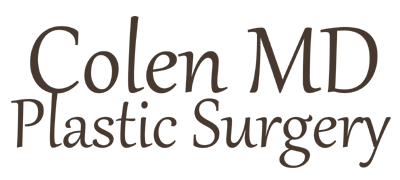Urinary incontinence, or involuntary leakage of urine is a common problem, but one not discussed freely in a doctor’s office. The onset of this condition may occur in one of two ways. Following a traumatic vaginal birth there may be a very sudden recognition by the new mother that she is unable to control the flow of urine. The onset comes very shortly after delivery and may occur with a variety of movements and activities by the mother. In a majority of cases urinary control returns within a few weeks, and sometimes within a few months. Muscle exercises are taught and control returns, though perhaps not with the same degree of confidence as before.
More commonly, and eventually of greater concern, is the leakage of urine that happens with coughing, sneezing, changing position and while on a tennis court or jogging. This type of incontinence begins often around the time of menopause, as the menstrual periods cease. The original loss of urine may be very slight, and noticeable only with certain physical activities.
Its slow onset may be tolerated with external napkins and may not seem necessary to bring to the doctors attention. In fact, the doctor may not regard the early forms of this problem worthy of discussion. That is unfortunate, because a woman should learn to look out for its progress and be able to determine specifically under what circumstances the leak will occur. Muscle exercises, called Kegel muscle exercises are often very helpful in an early stage of the condition. One is instructed to make believe one is urinating, and wants to stop the flow in the middle of the activity. This is a simple form of exercise that can be done by the patient at her own pace, throughout the day. The effectiveness of the exercise should be tested by the doctor with a simple vaginal exam. If the patient is instructed to stop the flow of urine, then the levator muscles will tense and become firm. Both the patient and the doctor are aware of the levator muscle response. In some instants it may be advisable to be taught to do a Kegel maneuver by a physical therapist.
Vaginal dryness and thinning of the vaginal lining may promote loss of urine and this condition may be reversed by a prescription for vaginal estrogen, to be applied once or twice weekly.
Urinary incontinence, when accompanied by frequency of urination may be due to a urinary tract infection (UTI). Providing a sample of urine in a doctor’s office or at a local laboratory may provide a diagnosis and the appropriate antibiotic necessary to correct the condition.
With advancing years, as our muscles weaken, those muscles holding the bladder in place and controlling the outflow of urine may need repair. In recent years this has become a relatively non-invasive procedure, capable of being performed in an ambulatory setting, without an overnight stay in the hospital.
Surgical repair of urinary incontinence may be done as a single operation, though it may be accompanied by other operations in the pelvis to lift some of the body parts or improve the cosmetic appearance of the labia or vagina.
Currently, one of the most effective procedures is to place a thin, permanent strip of mesh underneath the bladder, near the point where the urethra (the muscle tube that leads from the bladder to the outside) attaches to the bladder. The mesh acts as a backstop to prevent the bladder and urethra from descening more than a normal distance, thereby controlling the flow. Most women do not require a catheter after the procedure and within 1 days are able to conduct normal activities. Sexual intercourse should be avoided for 4- 6 weeks.


